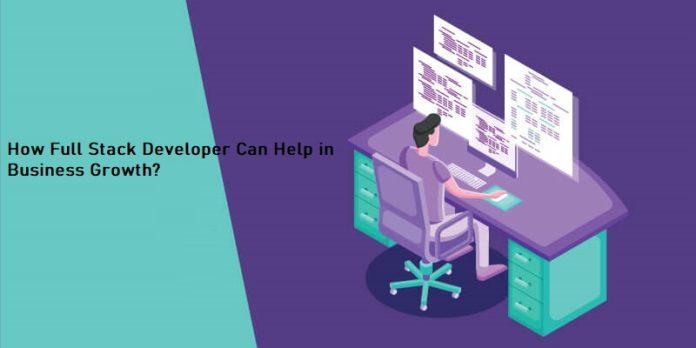In today’s fast-paced digital landscape, businesses are constantly seeking skilled professionals who can handle multiple aspects of software development. Enter the Full Stack Developer – a versatile and highly sought-after expert capable of handling both frontend and backend development.
In this blog, we will explore the top 10 benefits to hire Full Stack Developers and how they can prove to be invaluable assets to your organization.
Cost-Effectiveness: Full Stack Developers possess a wide range of skills, eliminating the need to hire multiple specialists. With one resource handling various tasks, you can significantly reduce recruitment and training costs.
Versatility: These developers are well-versed in various technologies, programming languages, and frameworks. Their adaptability allows them to work across different projects and quickly switch between tasks, resulting in improved project management and delivery timelines.
Time-Efficient: Hiring a Full Stack Developer can streamline the development process. They have the ability to handle both frontend and backend tasks, ensuring better communication and collaboration between the two, resulting in faster project completion.
Problem Solvers: Full Stack Developers are natural problem solvers. They possess a holistic understanding of the software development process, allowing them to identify and resolve issues across the entire application stack efficiently.
Seamless Project Management: If you hire dedicated developers team in your process, you can minimize communication gaps between frontend and backend teams. This streamlines project management, as one developer can oversee the entire development process from conception to deployment.
Efficient Prototyping: Full Stack Developers can create functional prototypes quickly. Their comprehensive knowledge allows them to build minimum viable products (MVPs) faster, enabling businesses to validate their ideas and concepts more rapidly.
Enhanced Collaboration: With the ability to work on different aspects of a project, Full Stack Developers can bridge the gap between designers, developers, and other stakeholders. Their cross-functional skills foster better communication and collaboration between team members.
Continuous Development and Learning: Full Stack Developers are naturally curious and committed to learning. They stay updated with the latest trends and technologies, ensuring that your projects are built using the most modern and efficient solutions available.
Resource Optimization: In smaller organizations or startups, hiring a Full Stack Developer can be an excellent way to optimize resources. Since they can handle a wide range of tasks, they can single-handedly manage the development of entire projects.
Scalability: As your project grows, a Full Stack Developer can seamlessly handle increased responsibilities. They can scale your application without requiring additional manpower, making it easier to manage expanding projects and maintain consistency in the codebase.
Hire full stack developers through the IT Staff Augmentation Services model and bring an array of benefits to your organization. From cost-effectiveness and efficient project management to continuous learning and enhanced collaboration, these versatile professionals can be instrumental in elevating your software development endeavors. As businesses strive to stay ahead in the competitive digital landscape, the Full Stack Developer’s ability to handle diverse tasks makes them a valuable asset for any development team.
Roles and Responsibilities of a Full Stack Developer
A Full Stack Developer is a multifaceted professional capable of handling various roles and responsibilities across the entire software development process. Their broad skill set allows them to contribute effectively to different aspects of a project. Let’s explore some of the key roles and responsibilities of a Full Stack Developer:
Frontend Development
Full Stack Developers are proficient in frontend technologies such as HTML, CSS, and JavaScript. They are responsible for creating visually appealing and user-friendly interfaces that ensure a seamless user experience.
Backend Development
Handling server-side logic and databases is another crucial aspect of a Full Stack Developer’s role. They work with technologies like Node.js, Python, PHP, or Ruby on Rails to develop robust backend systems and manage data.
Database Management
Full Stack Developers are knowledgeable in database management, including designing, implementing, and optimizing databases. They work with various database systems like MySQL, MongoDB, PostgreSQL, or SQL Server.
Server Management and Deployment
Managing servers and deploying applications are within the purview of Full Stack Developers. They ensure that applications are properly hosted and maintain server efficiency and security.
API Development
Creating Application Programming Interfaces (APIs) that enable smooth communication between the front-end and backend is an integral part of a Full Stack Developer’s responsibilities.
Version Control
Full Stack Developers are skilled in version control systems like Git, enabling them to track changes, collaborate with other developers, and manage code efficiently.
Troubleshooting and Bug Fixing
Identifying and resolving technical issues, bugs, and performance bottlenecks are part of a Full Stack Developer’s daily routine. Their comprehensive knowledge allows them to troubleshoot problems across the entire application stack.
Project Planning and Architecture
Full Stack Developers are involved in project planning, outlining the architecture, and making technology decisions based on project requirements.
Continuous Integration and Deployment
They implement Continuous Integration (CI) and Continuous Deployment (CD) practices to automate the development, testing, and deployment processes, ensuring a more efficient development pipeline.
Research and Learning
To stay up-to-date with the latest technologies and industry trends, Full Stack Developers invest time in continuous research and learning. They are always eager to explore new tools and frameworks to enhance their skill set.
A Full Stack Developer’s roles and responsibilities encompass a wide range of tasks, from frontend and backend development to database management, deployment, and continuous learning. Their ability to handle diverse responsibilities makes them an invaluable asset to any development team, contributing to the success and growth of the projects they undertake.



